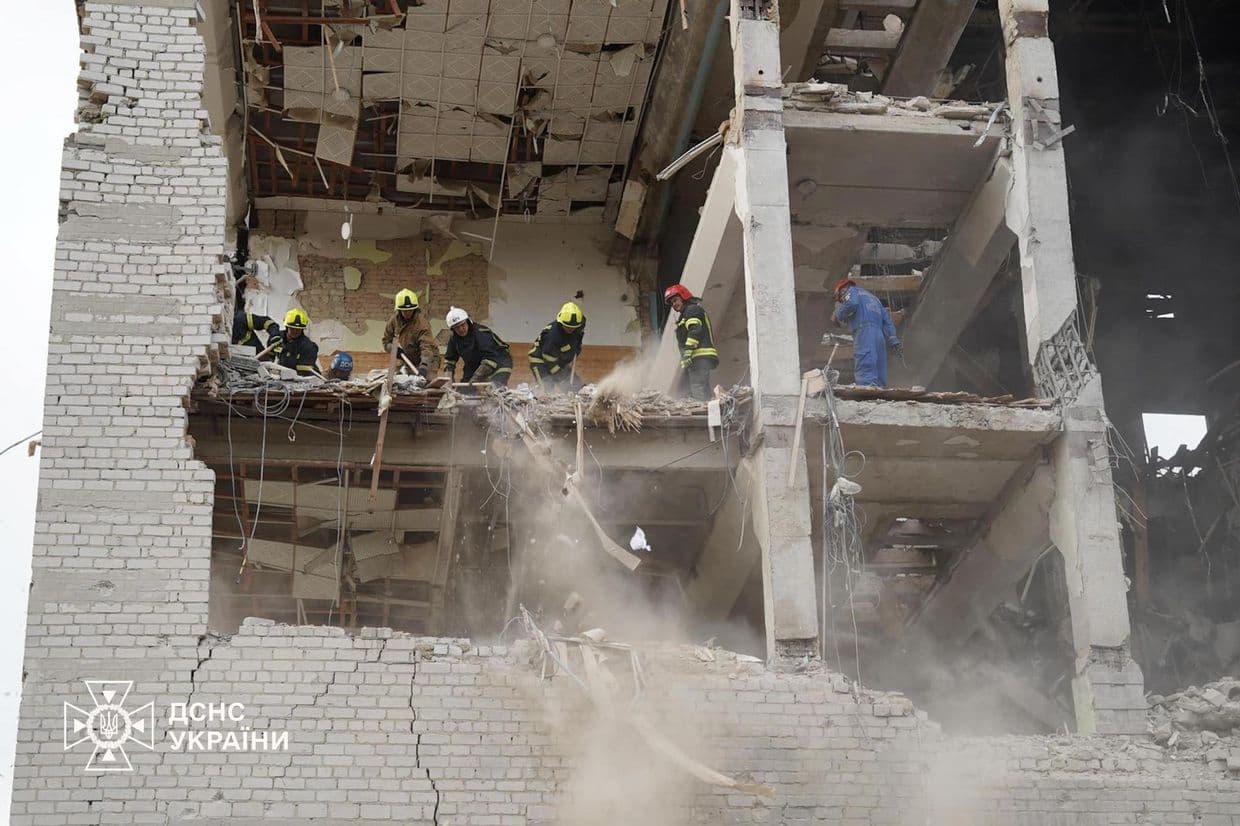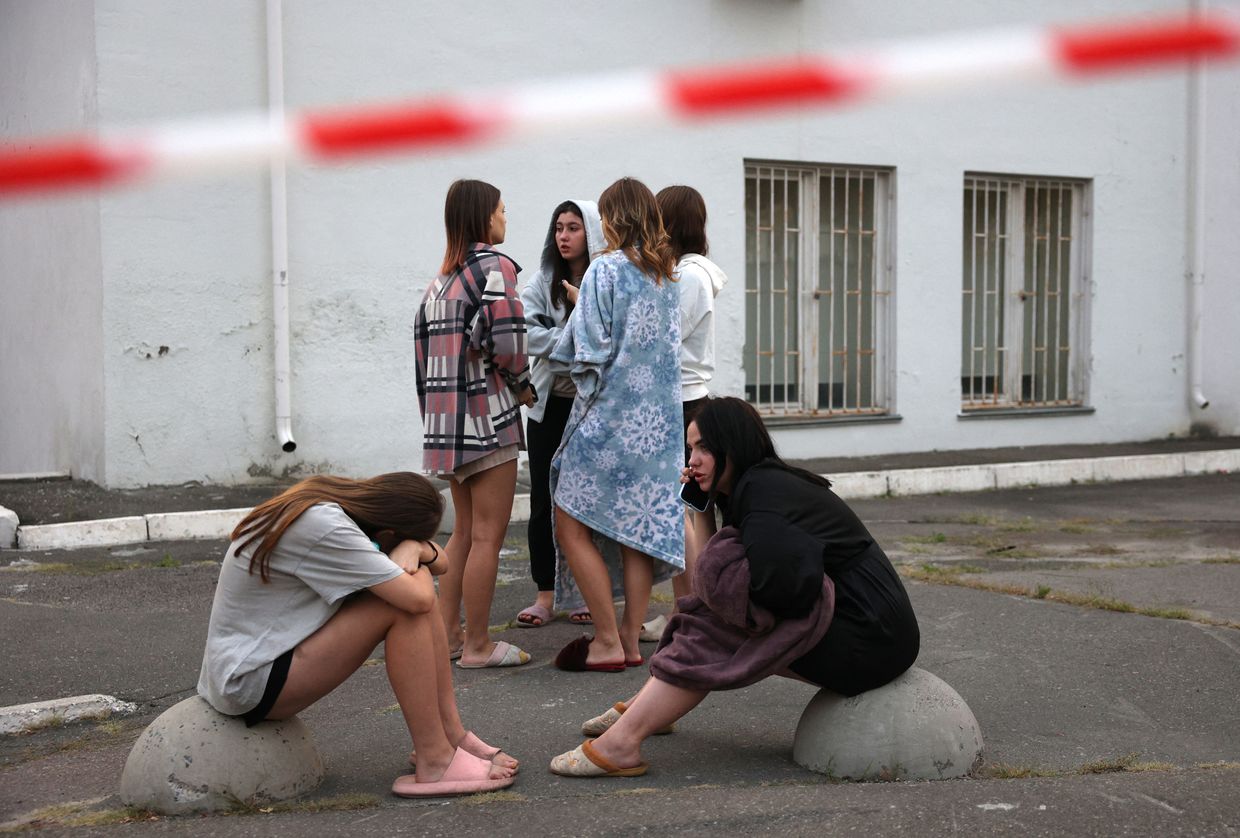Death toll of Russia's Sept. 3 strike on Poltava rises to 54

The death toll of Russia's strike against the Ukrainian city of Poltava on Sept. 3 has risen to 54, the State Emergency Service reported on Sept. 5 amid ongoing rescue operations.
Another 297 people are currently listed as wounded, while five more may still be under the rubble.
Russia launched two ballistic missiles against the city on Sept. 3, hitting the Military Institute of Communications and a neighboring medical facility. The educational institution building was partially destroyed.
There were no ceremonies or other events near the military institute at the time of the Russian attack, Dmytro Lazutkin, Defense Ministry spokesperson, said on national television, refuting such unofficial claims.
Russian attacks have increasingly targeted educational facilities as the school year began in Ukraine, hitting a number of them in Sumy, Lviv, and Kryvyi Rih overnight on Sept. 4.
Poltava is a city of around 300,000, located in Poltava Oblast in central Ukraine. It is situated around 120 kilometers (75 miles) from the border with Russia, and 230 kilometers (143 miles) from the eastern front.
The city and surrounding region are regular targets of Russian drone and missile attacks.














